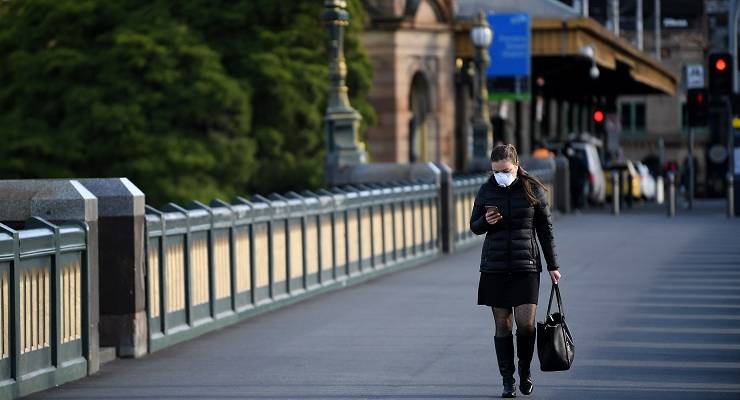
The cumulative actions of governments — federal and state, both left and right — since the onset of the pandemic have been a slow march towards Australia becoming a nation of petrified individualists.
A once-famed nation of egalitarians has been manipulated by career politicians adept at stoking fear and division — with significant personal political success.
Incrementally, the majority has sat idle for each action while the lives of other Australians have been damaged.
In January 2020, when the 11 million residents of Wuhan were collectively imprisoned, we looked on with a small sense of horror but minimal personal concern. They were voiceless Chinese people imprisoned in their tiny homes — a far cry from the cosmopolitans of Sydney, Melbourne or Perth.
But within months all Australian residents were locked down, in part. The nationwide lockdowns were far from equal. Some industries — such as live entertainment, hospitality, and my own travel sector (often populated by lower-paid, younger and casual workers) — were decimated, but they represented a minority. Others, like the politically connected mining and construction sectors, continued largely as normal, and retirees or the millions ensconced in the public sector cared not as their incomes remained intact (or in some cases, enlarged) while working from their comfortable homes. Only a relatively small number of people were genuinely affected.
The hastily constructed and ultimately ill-devised JobKeeper served to minimise unemployment and ensure the millions of low-paid workers were partially satiated, but in truth represented a secret transfer of wealth from future generations to billionaires like Gerry Harvey.
As Victoria entered its second, far more brutal, lockdown in July, the rest of Australia looked on, no doubt grateful for Victoria’s sacrifice but with a sense of quiet schadenfreude that it was only Victorians who bore the financial, mental and physical brunt. Most Australians could continue to minimise the tiny chance of death that may result should the novel coronavirus cross our artificially constructed internal borders.
When the migrant residents of Flemington’s housing towers were imprisoned in their tiny apartments with barely minutes’ notice (a move later deemed a breach of fundamental human rights), the rest of Melbourne shrugged their shoulders –some perhaps of the view that underprivileged migrants somehow deserved the horrific fate that was cast upon them by what was once Australia’s most progressive state government.
In August, Queensland’s Labor Premier, Annastacia Palaszczuk, declared that “Queensland hospitals [are] for our people” and refused permission for a young NSW mother to have an emergency procedure. Two months later Palaszczuk was reelected by a population apparently more concerned about a virus that’s been fatal to 0.05% of people worldwide than for the fundamental human rights of a small number of fellow Australians.
During this time, hundreds of thousands of Australians were legally or practically prevented from returning to Australia. Limited quarantine spots coupled with tens of thousands of dollars in costs meant an Australian passport became practically worthless (wealthy celebrities notwithstanding). While some were finally woken by the India flight ban, for the vast majority safely ensconced in zero-COVID Australia, the suffering of those few foolish enough to be stuck abroad was largely justified to “keep us safe”.
The majority again sat by while millions of children were robbed of a proper education — for those in Melbourne almost half a year was lost. But for those who don’t have school-age children in Melbourne, that was another necessary sacrifice at the altar of the demonic spread of the insidious virus (median age of death: 83). Meanwhile, Kids Helpline last week reported an increase in youth suicide attempts of 184%.
A nation of migrants — more than half of Australians were born overseas or have an overseas-born parent — appears to support a prime minister cruising to a federal election on the back of seemingly permanently closed borders. Those missing funerals or weddings abroad, even if fully vaccinated, again remain an irrelevant minority.
That is not to say we should have sat aside and let the virus reap death and destruction, but rather to combine careful interventions (targeted at the elderly and vulnerable) with humanity rather than fear-inducing populism.
We have collectively stood back as many Australians, often poor and usually foreign-born, carry a heavy personal toll to ensure that an endemic virus is cast out from our shores. As long as the impact is felt by someone else, every action is forgivable.
Even with the miracle of vaccines, a majority continue to live in fear of a virus that most of the world has now learnt to live with.
Adam Schwab is a director of Private Media, the publisher of Crikey, the co-founder of travel company Luxury Escapes and the author of Pigs at the Trough: Lessons from Australia’s Decade of Corporate Greed.








Crikey is committed to hosting lively discussions. Help us keep the conversation useful, interesting and welcoming. We aim to publish comments quickly in the interest of promoting robust conversation, but we’re a small team and we deploy filters to protect against legal risk. Occasionally your comment may be held up while we review, but we’re working as fast as we can to keep the conversation rolling.
The Crikey comment section is members-only content. Please subscribe to leave a comment.
The Crikey comment section is members-only content. Please login to leave a comment.